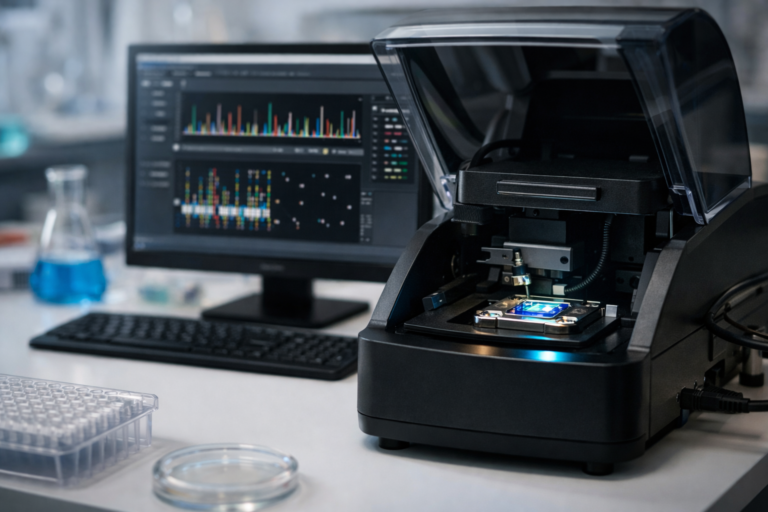
PureTech Showcases Differentiated IPF Strategy, Highlights Patient Insights, and Positions Deupirfenidone as a Potential New Standard of Care
PureTech Health plc (Nasdaq: PRTC, LSE: PRTC), a clinical-stage biotherapeutics company devoted to transforming outcomes for patients facing devastating diseases, took center stage at the 2025 IPF Summit in Boston, underscoring its emerging leadership in idiopathic pulmonary fibrosis (IPF). The company spotlighted data from its Phase 2b ELEVATE IPF trial, which strongly support advancing its investigational therapy deupirfenidone (LYT-100) into Phase 3 clinical testing through its newly formed respiratory-focused Founded Entity, Celea Therapeutics.
In addition to presenting compelling clinical results, PureTech emphasized its patient-centric approach by unveiling new research on patient preferences and treatment decision-making, offering rare insights into how individuals with IPF weigh efficacy against tolerability in their treatment choices. Taken together, these data and perspectives reflect not only a potential therapeutic breakthrough, but also a broader rethinking of how therapies for IPF should be designed, delivered, and supported in practice.
A Shifting Landscape in Idiopathic Pulmonary Fibrosis
Idiopathic pulmonary fibrosis is a rare, progressive, and ultimately fatal lung disease characterized by scarring of the lung tissue, which leads to declining lung function, worsening breathlessness, and severely reduced quality of life. Despite significant advances in understanding its pathology, treatment options have remained limited.
Currently, PureTech Health two antifibrotic therapies—pirfenidone and nintedanib—are approved and available globally. Both drugs can slow disease progression, but neither halts nor reverses lung fibrosis. Importantly, both therapies are associated with side effects that contribute to high rates of treatment discontinuation. This therapeutic stagnation has left patients, caregivers, and physicians longing for innovation that meaningfully improves efficacy while balancing tolerability.
“After more than a decade without meaningful therapeutic advancement, the IPF treatment landscape is beginning to shift,” said Camilla Graham, MD, MPH, Senior Vice President of Medical Affairs at PureTech Health. “To deliver real impact, innovation must extend beyond the molecule—into clinical trial design, patient and provider education, and access. That’s the bar we’ve set with deupirfenidone.”
Patient Insights: Understanding Real-World Trade-Offs
At the Summit, PureTech revealed findings from structured interviews conducted with 16 individuals living with IPF. These conversations were designed to probe patient perspectives on treatment trade-offs, particularly between efficacy and tolerability.
The results were striking:
- 69% of patients said they would prefer a therapy with greater efficacy, even if it came with more side effects, compared to one that was easier to tolerate but less effective.
- 94% stated they would proactively initiate conversations with their physicians if a new treatment offered a differentiated clinical profile.
These insights illustrate a profound truth: while PureTech Health tolerability matters, patients primarily seek therapies that meaningfully slow or stabilize their disease. For many, the risk of side effects is an acceptable trade-off if it comes with the promise of longer, healthier living.
Dr. Tejaswini Kulkarni, MPH, University of Alabama at Birmingham and co-author on the research, emphasized how this patient mindset should inform clinical development:

“We’ve seen real hesitation around initiating currently available therapies—even among patients with progressive disease. These findings reflect a shift in mindset. People with IPF want better outcomes, and they’re willing to accept manageable tolerability trade-offs in pursuit of a more effective treatment. That perspective is essential to designing trials and therapies that truly resonate with those who matter most.”
De-Risking Development Through Trial Design
PureTech Health Clinical trial design in IPF is notoriously complex. Variability in disease progression, challenges in measuring lung function decline, and the heterogeneity of patient populations have all contributed to failed trials over the past decade. PureTech took these realities into account when designing its Phase 2b ELEVATE IPF trial, building a strategy that prioritizes robustness, reproducibility, and translatability into Phase 3.
Key features of the trial included:
- Extended Duration (26 weeks):
Most Phase 2 IPF studies span only 12 weeks, offering limited insight into durability of effect. By extending the treatment period to 26 weeks, PureTech captured a more reliable picture of lung function decline, while its ongoing open-label extension (OLE) now offers data through 52 weeks. - Rigorous Data Quality Controls:
Spirometry, the gold-standard endpoint for IPF, is subject to significant variability. To address this, ELEVATE IPF implemented 2019 ATS standards for spirometry training and applied centralized reading protocols with rigorous quality checks. - Active Comparator Arm:
ELEVATE was the first industry-sponsored IPF trial to include an active comparator (pirfenidone) alongside placebo, enhancing interpretability and reinforcing confidence in the observed treatment effect of deupirfenidone. - Consistency of Development Plan:
PureTech has stated its intention to mirror these trial design elements in Phase 3 discussions with the U.S. Food and Drug Administration (FDA), thereby minimizing technical risk and ensuring continuity.
Dr. Toby Maher, Professor of Medicine and Director of Interstitial Lung Disease at the University of Southern California and lead investigator in the trial, praised the strategy:
“The ELEVATE IPF trial stands out for its thoughtful design and execution. By selecting a 26-week treatment period, including an active comparator, and applying rigorous data quality controls, the study was designed to generate the type of robust and reliable data that has often been difficult to achieve in early-stage IPF therapeutic development. Just as importantly, deupirfenidone builds on more than a decade of clinical and real-world experience with pirfenidone, reinforcing confidence in the ELEVATE data and its potential to be replicated in Phase 3.”
ELEVATE IPF: Data That Point to a New Standard
The ELEVATE IPF Phase 2b trial was a randomized, double-blind, placebo- and active-controlled study designed to test the efficacy and safety of deupirfenidone across multiple dosing regimens.
The trial achieved its primary endpoint, demonstrating a statistically significant and clinically meaningful reduction in lung function decline with deupirfenidone 825 mg three times daily (TID) compared to placebo.
Key findings included:
- FVC decline at 26 weeks:
- Deupirfenidone 825 mg TID: -21.5 mL
- Pirfenidone 801 mg TID: -51.6 mL
- Placebo: -112.5 mL
- The treatment effect of deupirfenidone was approximately 50% greater than pirfenidone when compared to placebo (80.9% vs. 54.1%).
- Pharmacokinetic data showed deupirfenidone 825 mg achieved ~50% higher systemic exposure compared to pirfenidone without added tolerability burdens.
- Long-Term Durability
The ongoing open-label extension provides longer-term validation of efficacy. As of May 9, 2025, 101 patients had completed at least 52 weeks of deupirfenidone treatment. Patients on deupirfenidone 825 mg TID showed an annual FVC decline of just -32.8 mL, closely aligning with the natural decline seen in healthy aging adults (-30 mL to -50 mL per year).
This suggests that deupirfenidone may stabilize lung function in IPF, a feat unmatched by currently available therapies.
Further data from patients transitioning into deupirfenidone after receiving placebo or pirfenidone during the blinded trial will be presented at the European Respiratory Society (ERS) Congress in September 2025.
Celea Therapeutics: Advancing Toward Phase 3
To accelerate development and potential commercialization of deupirfenidone, PureTech has launched Celea Therapeutics, a new Founded Entity dedicated to respiratory disease innovation.
The company will be led by Sven Dethlefs, PhD, who brings deep expertise in respiratory therapeutics and a proven track record in late-stage drug development and commercialization.
“The ELEVATE IPF trial has delivered some of the most compelling data the IPF field has seen, and it’s a privilege to now be leading the effort to advance deupirfenidone into Phase 3 through PureTech’s newest Founded Entity, Celea Therapeutics,” said Dr. Dethlefs. “With a foundation of rigorous science, differentiated efficacy, and strong stakeholder alignment, we believe deupirfenidone has the potential to become a new standard of care for people with IPF.”
What sets PureTech apart is not just the molecule, but its end-to-end innovation strategy. The company is intentionally designing its clinical program around real-world patient experiences, physician needs, and payer considerations.
This includes:
- Patient-informed trial design that incorporates tolerance for side effects in exchange for greater efficacy.
- Provider education to help clinicians navigate treatment sequencing and shared decision-making with patients.
- Market access planning aimed at ensuring affordability and availability if deupirfenidone secures approval.
Dr. Graham summarized the vision:
“Innovation in IPF requires more than drug development. It demands alignment across patients, clinicians, and payers. That’s the philosophy we’re applying to deupirfenidone as it advances toward Phase 3 and, potentially, the clinic.”
The presentation of ELEVATE IPF data at the 2025 IPF Summit represents a pivotal moment for PureTech, Celea Therapeutics, and the broader IPF community. By combining robust clinical evidence, insights from patient perspectives, and a strategically de-risked trial design, PureTech is positioning deupirfenidone not just as another antifibrotic, but as a potentially transformative therapy capable of redefining the standard of care in IPF.
With Phase 3 planning underway and momentum building, the coming years could mark a long-awaited breakthrough in a field that has seen little change for more than a decade. For patients living with idiopathic pulmonary fibrosis, deupirfenidone offers the promise of stability, hope, and a future where life is measured not by rapid decline, but by meaningful preservation of lung function and quality of life.





